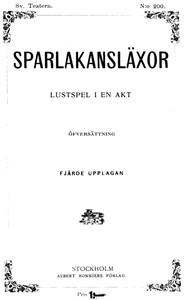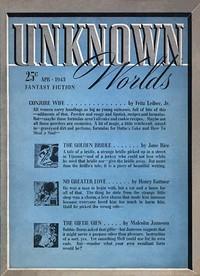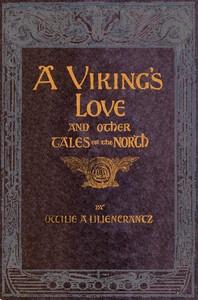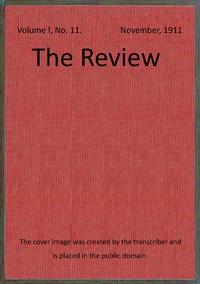|
|
Read this ebook for free! No credit card needed, absolutely nothing to pay.Words: 16074 in 4 pages
This is an ebook sharing website. You can read the uploaded ebooks for free here. No credit cards needed, nothing to pay. If you want to own a digital copy of the ebook, or want to read offline with your favorite ebook-reader, then you can choose to buy and download the ebook.

: Sparlakansläxor by Moser Gustav Von Alml F Knut Translator - German drama (Comedy) Translations into Swedish@FreeBooksThu 08 Jun, 2023 CHAP. PAGE The years have come and gone at Beechhurst as elsewhere, but the results of time and change seem to have almost passed it by. Every way out of the scattered forest-town is still through beautiful forest-roads--roads that cleave grand avenues, traverse black barren heaths, ford shallow rivers, and climb over ferny knolls whence the sea is visible. The church is unrestored, the parsonage is unimproved, the long low house opposite is still the residence of Mr. Carnegie, the local doctor, and looks this splendid summer morning precisely as it looked in the splendid summer mornings long ago, when Bessie Fairfax was a little girl, and lived there, and was very happy. Bessie was not akin to the doctor. Her birth and parentage were on this wise. Her father was Geoffry, the third and youngest son of Mr. Fairfax of Abbotsmead in Woldshire. Her mother was Elizabeth, only child of the Reverend Thomas Bulmer, vicar of Kirkham. Their marriage was a love-match, concluded when they had something less than the experience of forty years between them. The gentleman had his university debts besides to begin life with, the lady had nothing. As the shortest way to a living he went into the Church, and the birth of their daughter was contemporary with Geoffry's ordination. His father-in-law gave him a title for orders, and a lodging under his roof, and Mr. Fairfax grudgingly allowed his son two hundred a year for a maintenance. The young couple were lively and handsome. They had done a foolish thing, but their friends agreed to condone their folly. Before very long a south-country benefice, the rectory of Beechhurst, was put in Geoffry's way, and he gayly removed with his wife and child to that desirable home of their own. They were poor, but they were perfectly contented. Nature is sometimes very kind in making up to people for the want of fortune by an excellent gift of good spirits and good courage. She was very kind in this way to Geoffry Fairfax and his wife Elizabeth; so kind that everybody wondered with great amazement what possessed that laughing, rosy woman to fall off in health, and die soon after the birth of a second daughter, who died also, and was buried in the same grave with her mother. The rector was a cheerful exemplification of the adage that man is not made to live alone. He wore the willow just long enough for decency, and then married again--married another pretty, portionless young woman of no family worth mentioning. This reiterated indiscretion caused a breach with his father, and the slender allowance that had been made him was resumed. But his new wife was good to his little Bessie, and Abbotsmead was a long way off. There were no children of this second marriage, which was lucky; for three years after, the rector himself died, leaving his widow as desolate as a clergyman's widow, totally unprovided for, can be. She had never seen any member of her husband's family, and she made no claim on Mr. Fairfax, who, for his part, acknowledged none. Bessie's near kinsfolk on her mother's side were all departed this life; there was nobody who wanted the child, or who would have regarded her in any light but an incumbrance. The rector's widow therefore kept her unquestioned; and being a woman of much sense and little pride, she moved no farther from the rectory than to a cottage-lodging in the town, where she found some teaching amongst the children of the small gentry, who then, as now, were its main population. It was hard work for meagre reward, and perhaps she was not sorry to exchange her mourning-weeds for bride-clothes again when Mr. Carnegie asked her; for she was of a dependent, womanly character, and the doctor was well-to-do and well respected, and ready with all his heart to give little Bessie a home. The child was young enough when she lost her own parents to lose all but a reflected memory of them, and cordially to adopt for a real father and mother those who so cordially adopted her. Still, she was Bessie Fairfax, and as the doctor's house grew populous with children of his own, Bessie was curtailed of her indulgences, her learning, her leisure, and was taught betimes to make herself useful. And she did it willingly. Her temper was loving and grateful, and Mrs. Carnegie had her recompense in Bessie's unstinting helpfulness during the period when her own family was increasing year by year; sometimes at the rate of one little stranger, and sometimes at the rate of twins. The doctor received his blessings with a welcome, and a brisk assurance to his wife that the more they were the merrier. And neither Mrs. Carnegie nor Bessie presumed to think otherwise; though seven tiny trots under ten years old were a sore handful; and seven was the number Bessie kept watch and ward over like a fairy godmother in the doctor's nursery, when her own life had attained to no more than the discretion and philosophy of fifteen. The chief of them were boys--boys on the plan of their worthy father; five boys with excellent lungs and indefatigable stout legs; and two little girls no whit behind their brothers for voluble chatter and restless agility. Nobody complained, however. They had their health--that was one mercy; there was enough in the domestic exchequer to feed, clothe, and keep them all warm--that was another mercy; and as for the future, people so busy as the doctor and his wife are forced to leave that to Providence--which is the greatest mercy of all. For it is to-morrow's burden breaks the back, never the burden of to-day. A constant regret with Mrs. Carnegie was her inability, from stress of annually recurring circumstances, to afford Bessie Fairfax more of an education, and especially that she was not learning to speak French and play on the piano. But Bessie felt no want of these polite accomplishments. She had no accomplished companions to put her to shame for her deficiencies. She was fond of a book, she could write an unformed, legible hand, and add up a simple sum. The doctor, not a bad judge, called her a shrewd, reasonable little lass. She had mother-wit, a warm heart, and a nice face, as sweet and fresh as a bunch of roses with the dew on them, and he did not see what she wanted with talking French and playing the piano; if his wife would believe him, she would go through life quite as creditably and comfortably without any fashionable foreign airs and graces. Thus it resulted, partly from want of opportunity, and partly from want of ambition in herself, that Bessie Fairfax remained a rustic little maid, without the least tincture of modern accomplishments. Still, the doctor's wife did not forget that her dear drudge and helpful right hand was a waif of old gentry, whose restoration the chapter of accidents might bring about any day. Nor did she suffer Bessie to forget it, though Bessie was mighty indifferent, and cared as little for her gentle kindred as they cared for her. And if these gentle kindred had increased and multiplied according to the common lot, Bessie would probably never have been remembered by them to any purpose; she might have married as Mr. Carnegie's daughter, and have led an obscure, happy life, without vicissitude to the end of it, and have died leaving no story to tell. But many things had happened at Abbotsmead since the love-match of Geoffry Fairfax and Elizabeth Bulmer. When Geoffry married, his brothers were both single men. The elder, Frederick, took to himself soon after a wife of rank and fortune; but there was no living issue of the marriage; and the lady, after a few years of eccentricity, went abroad for her health--that is, her husband was obliged to place her under restraint. Her malady was pronounced incurable, though her life might be prolonged. The second son, Laurence, had distinguished himself at Oxford, and had become a knight-errant of the Society of Antiquaries. His father said he would traverse a continent to look at one old stone. He was hardly persuaded to relinquish his liberty and choose a wife, when the failure of heirs to Frederick disconcerted the squire's expectations, and, with the proverbial ill-luck of learned men, he chose badly. His wife, from a silly, pretty shrew, matured into a most bitter scold; and a blessed man was he, when, after three years of tribulation, her temper and a strong fever carried her off. His Xantippe left no child. Mr. Fairfax urged the obligations of ancient blood, old estate, and a second marriage; but Laurence had suffered conjugal felicity enough, and would no more of it. It was now that the squire first bethought himself seriously of his son Geoffry's daughter. He proposed to bring her home to Abbotsmead, and to marry her in due time to some poor young gentleman of good family, who would take her name, and give the house of Fairfax a new lease, as had been done thrice before in its long descent, by means of an heiress. The poor young man who might be so obliging was even named. Frederick and Laurence gave consent to whatever promised to mitigate their father's disappointment in themselves, and the business was put into the hands of their man of law, John Short of Norminster, than whom no man in that venerable city was more respected for sagacity and integrity. If Mr. Fairfax had listened to John Short in times past, he would not have needed his help now. John Short had urged the propriety of recalling Bessie from Beechhurst when her father died; but no good grandmother or wise aunt survived at Kirkham to insist upon it, and the thing was not done. The man of law did not, however, revert to what was past remedy, but gave his mind to considering how his client might be extricated from his existing dilemma with least pain and offence. Mr. Fairfax had a legal right to the custody of his young kinswoman, but he had not the conscience to plead his legal right against the long-allowed use and custom of her friends. If they were reluctant to let her go, and she were reluctant to come, what then? John Short confessed that Mr. Carnegie and Bessie herself might give them trouble if they were so disposed; but he had a reasonable expectation that they would view the matter through the medium of common sense. Thus much by way of prelude to the story of Bessie Fairfax's Vicissitudes, which date from this momentous era of her life. Free books android app tbrJar TBR JAR Read Free books online gutenberg More posts by @FreeBooks
: The golden bridle by Rice Jane Alfred Newton H Illustrator - Horse racing Fiction; Jockeys Fiction; Mythology Greek Fiction@FreeBooksThu 08 Jun, 2023

: Anecdotes and memoirs of William Boen a coloured man who lived and died near Mount Holly New Jersey by Anonymous - African Americans Religion; Boen William 1735-1824; African Americans New Jersey Biography; Free African Americans New Jersey Biography; Ensl@FreeBooksThu 08 Jun, 2023
|
Terms of Use Stock Market News! © gutenberg.org.in2025 All Rights reserved.






